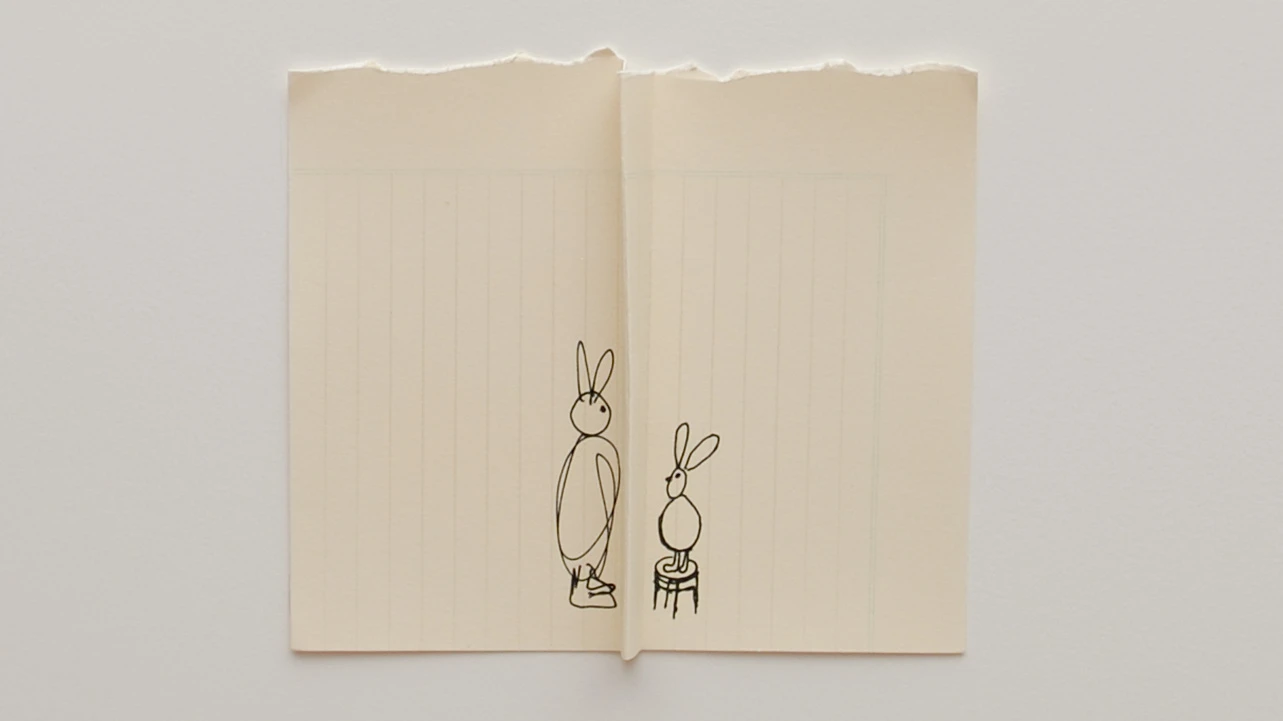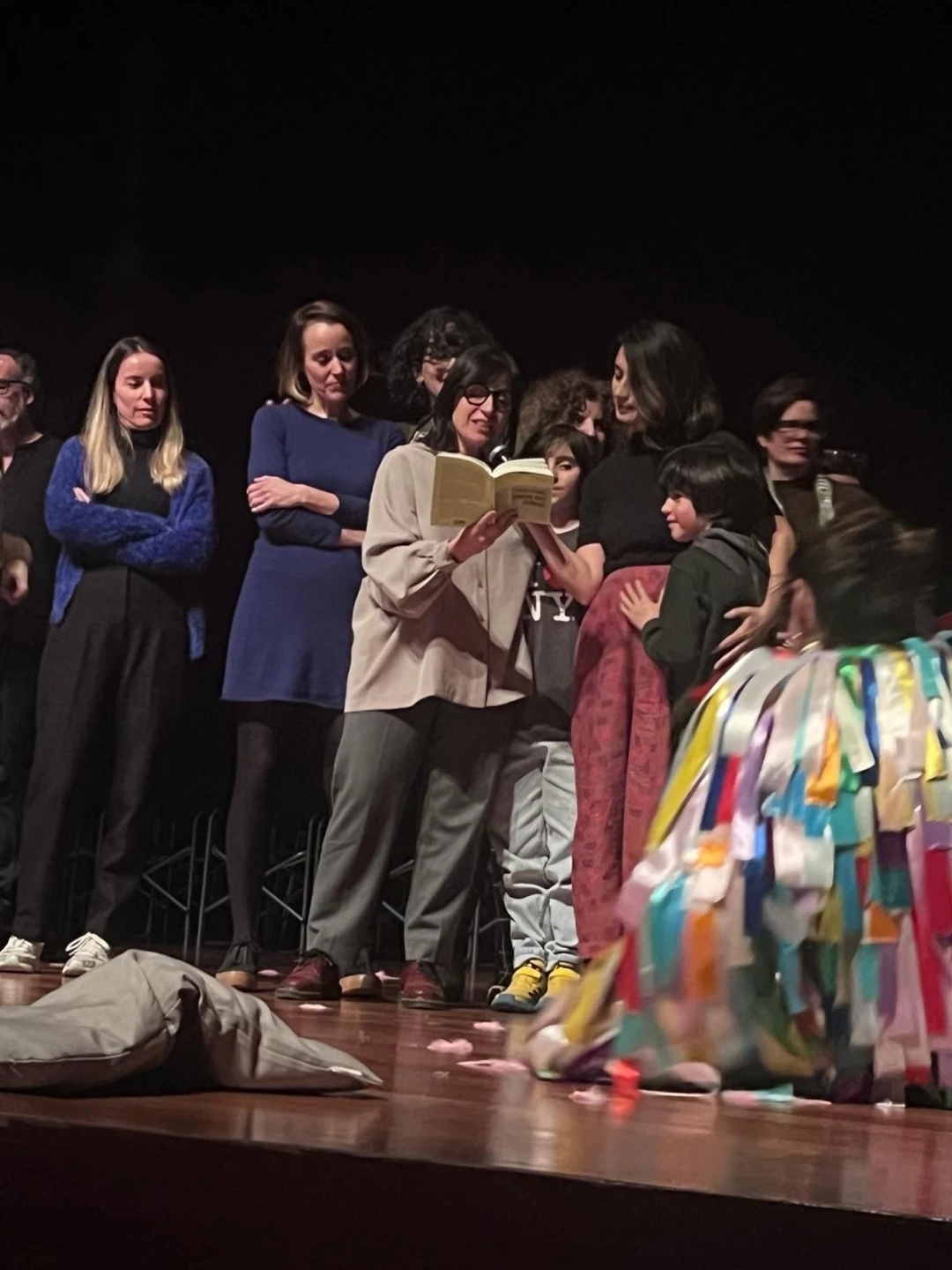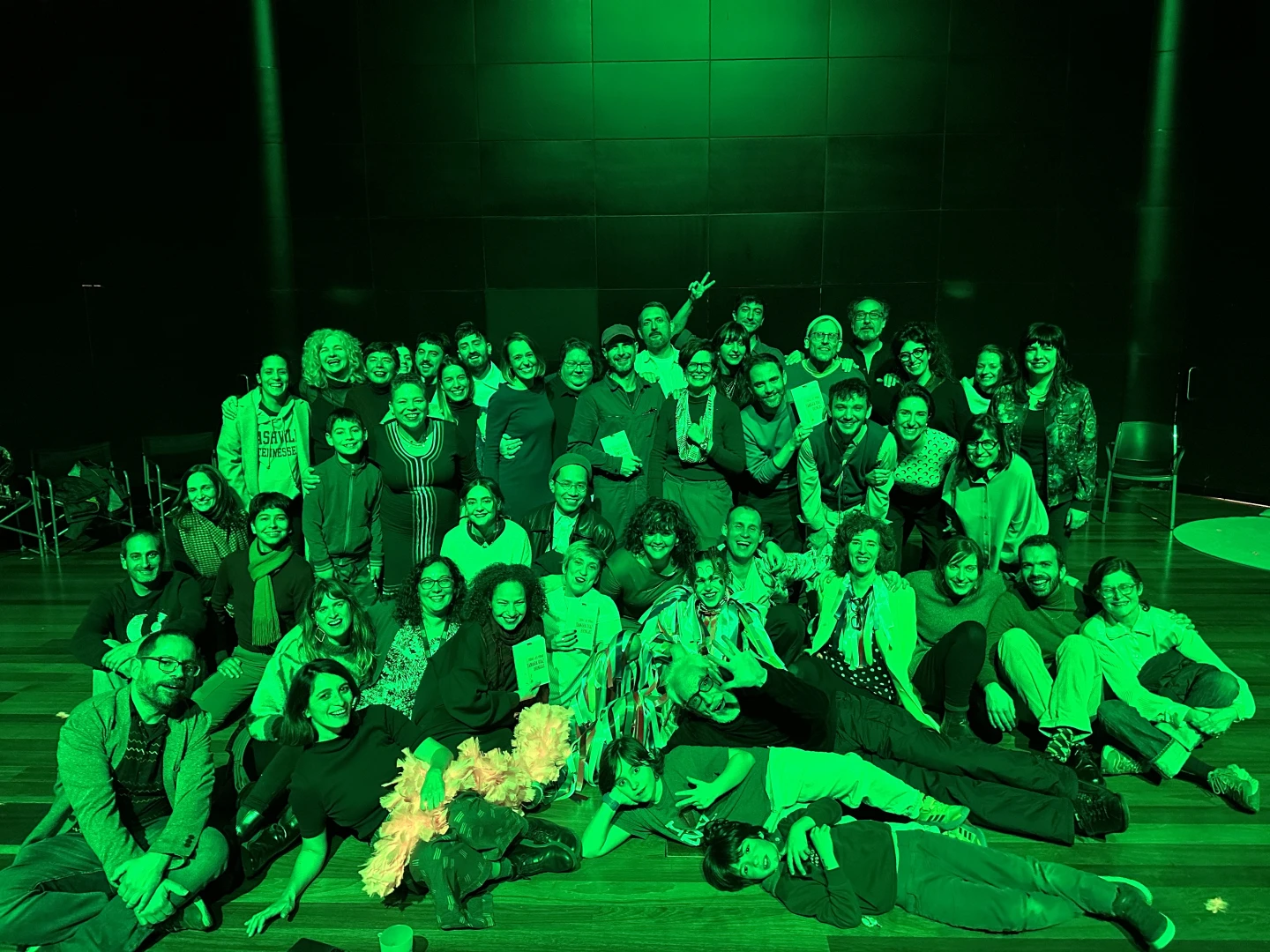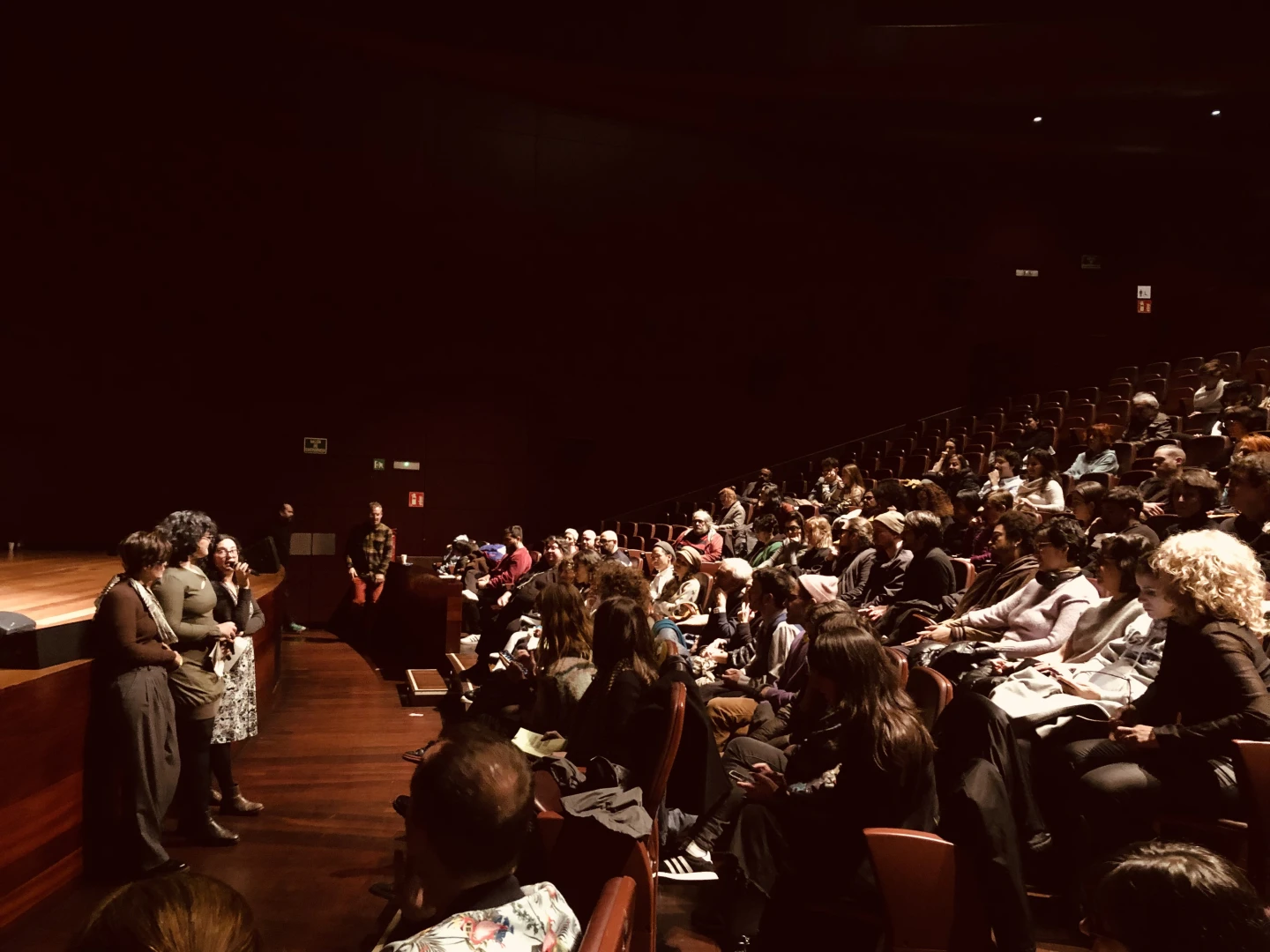
Held on 09 Mar 2024
This encounter seeks to share the texts of Cuban researcher and curator Tamara Díaz Bringas (1973–2022) in the form of a collective reading and dance. The texts, gathered in the volume Todas las vidas (All Lives) [consonni, 2024], edited by Aurora Carmenate Díaz, are the pretext for celebrating the forms of making and the networks Díaz Bringas wove throughout her life.
Díaz Bringas lived and worked for a decade in Costa Rica and the last thirteen years of her life in Spain. Always engaged with the networks she helped to entwine wherever she was, she drove forward multiple projects and spaces — she was a curator and editor with TEOR/ética, and oversaw the 10th Central American Art Biennial and the 31st Pontevedra Biennial. She was also a member of the Southern Conceptualisms Network, a coordinator and curator in the Museo Reina Sofía’s Exhibitions Department and the general coordinator of the Museo’s Public Activities.
Her texts resound with the rhythm of two of her preferred pleasures encompassing body and movement: swimming and dancing. From the members of the reading group Respirar (Breathe) and the affective circle of Tamaristas, and with Idoia Zabaleta as a guide and the presence of Élan d’Orphium, the attendees read dancing and dance reading words written across almost three decades. All of this is situated in the specific contexts and urgencies of Cuba, Central America and Spain, places where she lived and the artistic debates of which contributed from what she termed a “proximate critique”.
Through Díaz Bringas, writing is understood as being in the world which is highly attuned to listening and mutual understanding, imagining desirable futures where not creating alone is a political and daily act. This encounter and the book constitute a collective gesture of the many lives she touched to show an appreciation for her work and make it more visible.
The encounter is part of the special programme the Museo devotes to ARCOmadrid 2024 and its theme this year: The Shore, the Tide, the Current: an Oceanic Caribbean.
Organised by
Museo Reina Sofía
Inside the framework of
ARCOmadrid
Participants
Aurora Carmenate Díaz holds a degree in Art History from the University of Havana, where she worked as a professor of Latin American Art for three years. She curated the Cuban contemporary art project El Apartamento (2017–2020) and associated shows from the 13th Havana Biennial. She holds an MA in Contemporary Art History from the Autonomous University of Madrid, the Complutense University of Madrid and the Museo Reina Sofía, and some of her critical texts feature in the independent art and literature magazine Rialta.
consonni is an independent publisher with a cultural space in the San Francisco neighbourhood in Bilbao. It has produced cultural critique since 1996 and currently commits to the written word and also the whispered, heard, silenced, recited word, the word turned into action, into body. Written in lower case and constantly mutating, consonni is an androgynous, multi-headed creature, with feminisms and listening as superpowers, that looks to affect the world it inhabits and to be affected by it. Among other actions, it amplifies extraordinary voices in book form and creates contexts to read, dance, sing and discuss them collectively.
Élan d’Orphium (a.k.a. Pablo García Martínez) is an artist. His work sets forth re-readings of gender in a broad sense via a confabulating interpretation of listenings, gestures and observations with species from other kingdoms. He has participated in projects for Intermediae (Madrid, 2018), the programmes ¿Pero… esto es arte? (2019) and Picnic sessions in CA2M (Móstoles, 2023), Visual Arts Circuits from the Community of Madrid (Madrid, 2021), the Matadero Centres of Artists’ Residencies (Madrid, 2021), the National Classical Theatre Company (Madrid, 2022), Schwules Museum (Berlin, 2022) and the Injuve Youth Institute (Madrid, 2023).
'Respirar' is a space upheld by a group of workers from the Museo Reina Sofía and with the presence of other proximate people to share texts and be affected by them. It was set up in the early days of lockdown in 2020, under an initiative by the Museo’s Public Activities team, and was promoted by Tamara Díaz Bringas. After stopping for a time, the second phase of this space came from March to September 2023, in parallel with the gestation of the book Todas las vidas (All Lives).
'Tamaristas' is the colloquial name of a broad network of people united around Tamara Díaz Bringas and the practice of care. It is also the name of the WhatsApp group comprised of these people as a modest thread uniting them all.
Idoia Zabaleta is a choreographer and biologist. Since 2000, she has co-produced and created her own work, collaborating with other artists and researchers like Isabel de Naverán, Filipa Francisco, Antonio Tagliarini, Ixiar Rozas and Jaime Conde Salazar, among others. Her work has been on view at international festivals and encounters. In 2013, she created the work Leer y Bailar (Read and Dance), and, in 2022, presented the performance lecture of Lumbung stories with consonni at documenta fifteen. Since 2008, with Juan González, she has tended to and directed the AZALA space of artistic creation and residencies.



Más actividades
![Tracey Rose, The Black Sun Black Star and Moon [La luna estrella negro y negro sol], 2014.](https://recursos.museoreinasofia.es/styles/small_landscape/public/Obra/AD07091_2.jpg.webp)
On Black Study: Towards a Black Poethics of Contamination
Monday 27, Tuesday 28 and Wednesday 29 of April, 2026 – 16:00 h
The seminar On Black Study: Towards a Black Poethics of Contamination proposes Black Study as a critical and methodological practice that has emerged in and against racial capitalism, colonial modernity and institutional capture. Framed through what the invited researcher and practitioner Ishy Pryce-Parchment terms a Black poethics of contamination, the seminar considers what it might mean to think Blackness (and therefore Black Study) as contagious, diffuse and spreadable matter. To do so, it enacts a constellation of diasporic methodologies and black aesthetic practices that harbor “contamination” -ideas that travel through texts, geographies, bodies and histories- as a method and as a condition.
If Blackness enters Western modernity from the position of the Middle Passage and its afterlives, it also names a condition from which alternative modes of being, knowing and relating are continually forged. From within this errant boundarylessness, Black creative-intellectual practice unfolds as what might be called a history of touches: transmissions, residues and socialities that unsettle the fantasy of pure or self-contained knowledge.
Situated within Black radical aesthetics, Black feminist theory and diasporic poetics, the seminar traces a genealogy of Black Study not as an object of analysis but as methodological propositions that continue to shape contemporary aesthetic and political life. Against mastery as the horizon of study, the group shifts attention from what we know to how we know. It foregrounds creative Black methodological practices—fahima ife’s anindex (via Fred Moten), Katherine McKittrick’s expansive use of the footnote, citation as relational and loving labour, the aesthetics of Black miscellanea, and Christina Sharpe’s practices of annotation—as procedures that disorganise dominant regimes of knowledge. In this sense, Black Study is approached not as a discrete academic field but as a feel for knowing and knowledge: a constellation of insurgent practices—reading, gathering, listening, annotating, refusing, world-making—that operate both within and beyond the university.
The study sessions propose to experiment with form in order to embrace how ‘black people have always used interdisciplinary methodologies to explain, explore, and story the world.’ Through engagements with thinkers and practitioners such as Katherine McKittrick, C.L.R. James, Sylvia Wynter, Christina Sharpe, Fred Moten, Tina Campt, Hilton Als, John Akomfrah, fahima ife and Dionne Brand, we ask: What might it mean to study together, incompletely and without recourse to individuation? How might aesthetic practice function as a poethical intervention in the ongoing work of what Sylvia Wynter calls the practice of doing humanness?

Intergenerationality
Thursday, 9 April 2026 – 5:30pm
This series is organised by equipoMotor, a group of teenagers, young people and older people who have participated in the Museo Reina Sofía’s previous community education projects, and is structured around four themed blocks that pivot on the monstrous.
The third session gazes at film as a place from which to dismantle the idea of one sole history and one sole time. From a decolonial and queer perspective, it explores films which break the straight line of past-present-future, which mix memories, slow progress and leave space for rhythms which customarily make no room for official accounts. Here the images open cracks through which bodies, voices and affects appear, disrupting archive and questioning who narrates, and from where and for whom. The proposal is at once simple and ambitious: use film to imagine other modes of remembering, belonging and projecting futures we have not yet been able to live.

Remedios Zafra
Thursday March 19, 2026 - 19:00 h
The José Luis Brea Chair, dedicated to reflecting on the image and the epistemology of visuality in contemporary culture, opens its program with an inaugural lecture by essayist and thinker Remedios Zafra.
“That the contemporary antifeminist upsurge is constructed as an anti-intellectual drive is no coincidence; the two feed into one another. To advance a reactionary discourse that defends inequality, it is necessary to challenge gender studies and gender-equality policies, but also to devalue the very foundations of knowledge in which these have been most intensely developed over recent decades—while also undermining their institutional support: universities, art and research centers, and academic culture.
Feminism has been deeply linked to the affirmation of the most committed humanist thought. Periods of enlightenment and moments of transition toward more just social forms—sustained by education—have been when feminist demands have emerged most strongly. Awareness and achievements in equality increase when education plays a leading social role; thus, devaluing intellectual work also contributes to harming feminism, and vice versa, insofar as the bond between knowledge and feminism is not only conceptual and historical, but also intimate and political.
Today, antifeminism is used globally as the symbolic adhesive of far-right movements, in parallel with the devaluation of forms of knowledge emerging from the university and from science—mistreated by hoaxes and disinformation on social networks and through the spectacularization of life mediated by screens. These are consequences bound up with the primacy of a scopic value that for some time has been denigrating thought and positioning what is most seen as what is most valuable within the normalized mediation of technology. This inertia coexists with techno-libertarian proclamations that reactivate a patriarchy that uses the resentment of many men as a seductive and cohesive force to preserve and inflame privileges in the new world as techno-scenario.
This lecture will address this epochal context, delving into the synchronicity of these upsurges through an additional parallel between forms of patriarchal domination and techno-labor domination. A parallel in which feminism and intellectual work are both being harmed, while also sending signals that in both lie emancipatory responses to today’s reactionary turns and the neutralization of critique. This consonance would also speak to how the perverse patriarchal basis that turns women into sustainers of their own subordination finds its equivalent in the encouraged self-exploitation of cultural workers; in the legitimation of affective capital and symbolic capital as sufficient forms of payment; in the blurring of boundaries between life and work and in domestic isolation; or in the pressure to please and comply as an extended patriarchal form—today linked to the feigned enthusiasm of precarious workers, but also to technological adulation. In response to possible resistance and intellectual action, patriarchy has associated feminists with a future foretold as unhappy for them, equating “thought and consciousness” with unhappiness—where these have in fact been (and continue to be) levers of autonomy and emancipation.”
— Remedios Zafra

ARCO2045. The Future, for Now
Saturday 7, March 2026 - 9:30pm
The future, its unstable and subjective nature, and its possible scenarios are the conceptual focus of ARCOmadrid 2026. A vision of the future linked to recent memory, a flash of insight into a double-edged sword. This year's edition, as in the previous two, will once again hold its closing party at the Reina Sofia Museum. This time, the star of the show is Carles Congost (Olot, Girona, 1970), one of the artists featured in the new presentation of the Collections recently inaugurated on the 4th floor of the Sabatini Building.
Carles Congost, with his ironic and timeless gaze, is responsible for setting the tone for this imperfect future, with a DJ session accompanied by some of his works in the Cloister on the first floor of the Sabatini Building of the Museo on the night of Saturday 7 March.

27th Contemporary Art Conservation Conference
Wednesday, 4, and Thursday, 5 March 2026
The 27th Contemporary Art Conservation Conference, organised by the Museo Reina Sofía’s Department of Conservation and Restoration, with the sponsorship of the Mapfre Foundation, is held on 4 and 5 March 2026. This international encounter sets out to share and debate experience and research, open new channels of study and reflect on conservation and the professional practice of restorers.
This edition will be held with in-person and online attendance formats, occurring simultaneously, via twenty-minute interventions followed by a five-minute Q&A.